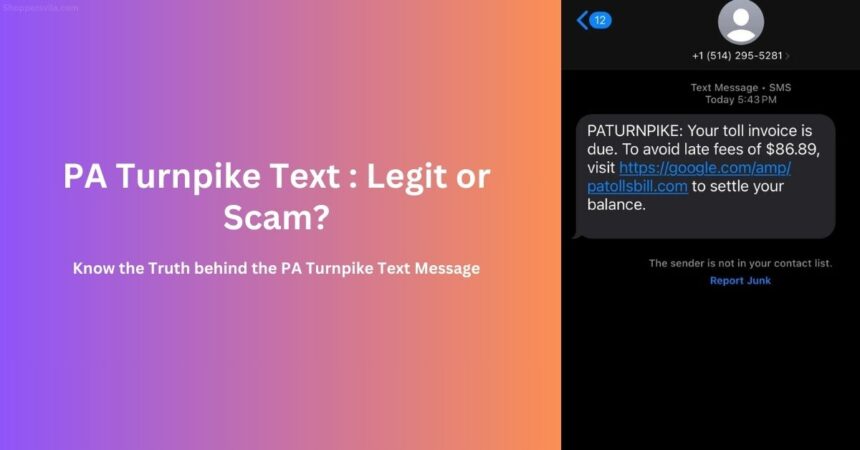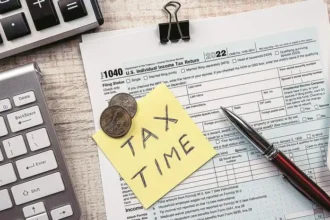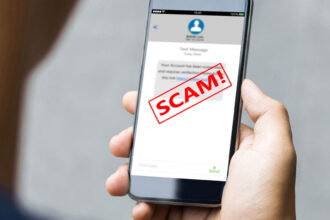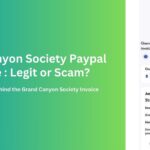A sophisticated text message scam targeting Pennsylvania Turnpike users has resurfaced with increasing frequency, leaving many drivers confused about legitimate toll charges. The scam, which first appeared in April last year, has become more prevalent following Pennsylvania’s recent transition to open road tolling. As officials from multiple states issue warnings, here’s what you need to know to protect yourself from these fraudulent messages.
Overview of the PA Turnpike Text Scam
The scam operates through a technique known as “smishing” (SMS phishing), where fraudsters send text messages claiming to be from the Pennsylvania (PA) Turnpike Commission or E-ZPass. These messages typically inform recipients they have an outstanding toll balance that requires immediate payment to avoid substantial late fees.
What makes this particular scam concerning is its deceptive use of technology. Many of the fraudulent messages contain links that appear to originate from legitimate sources, such as Google. The scammers exploit Google’s Accelerated Mobile Pages (AMP) framework to create links that begin with “google.com/amp/” followed by a malicious website address.
A typical scam message might read:
PATURNPIKE: Your toll invoice is due. To avoid late fees of $86.89, visit https://google.com/amp/patollsbill.com to settle your balance.
fraudulent message example
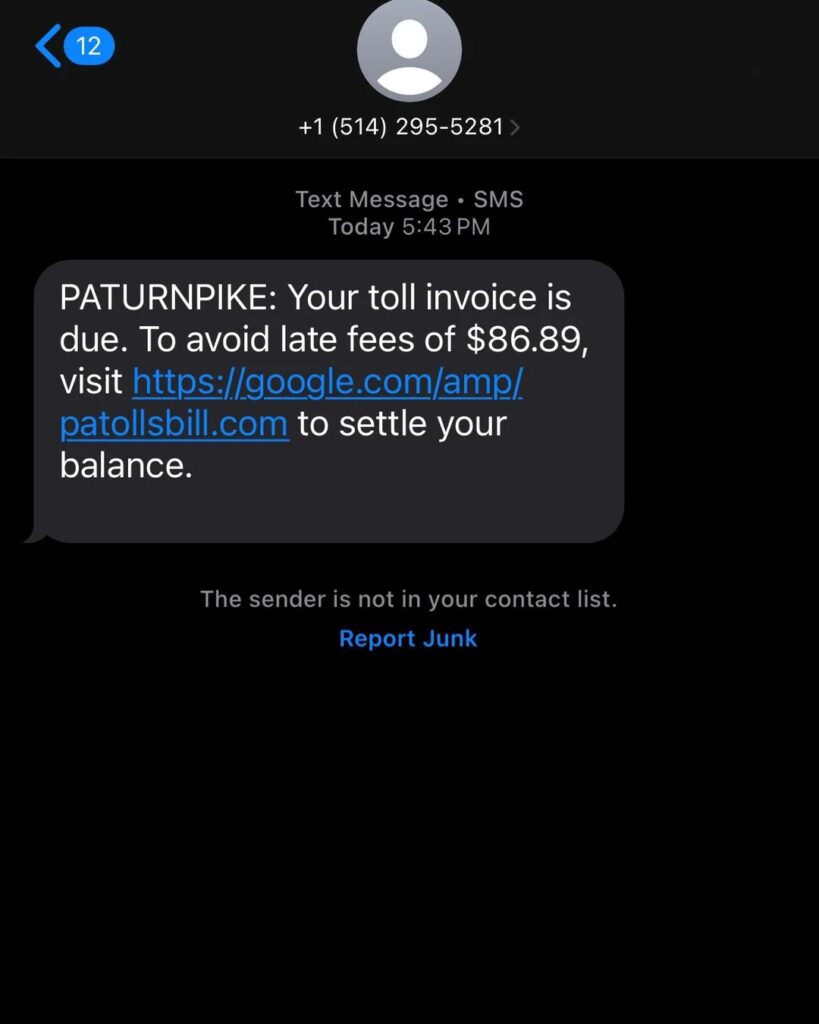
Crispin Havener, a spokesperson for the Pennsylvania Turnpike Commission, confirmed that these messages are not the result of a data breach. “These are just bad actors who are getting a bunch of random numbers and are sending the messages out hoping to try to lure someone and to get their data directly,” Havener explained.
How Scammers Trap Unsuspecting Drivers
The scammers behind these fraudulent messages employ several psychological tactics to create a sense of urgency and fear:
- Timing Manipulation: Some drivers report receiving these messages shortly after using the turnpike, creating the illusion that the text is a legitimate follow-up to their recent travel.
- Threat of Financial Penalties: The messages typically mention specific late fees (often around $86.89) to create a sense of immediate financial risk.
- Appearance of Legitimacy: By using official-sounding language and incorporating elements like Google’s AMP framework in their links, scammers make their messages appear more credible.
- Widespread Targeting: The scam isn’t limited to Pennsylvania residents. Similar messages have been reported regarding tolls in Massachusetts, Ohio, Maryland, New Jersey, and Delaware, indicating a coordinated nationwide effort.
What’s particularly concerning is the targeted nature of some of these scams. While many messages are sent to random numbers, some Reddit users have reported receiving these texts despite having out-of-state phone numbers but Pennsylvania E-ZPass accounts, raising questions about how scammers might be selecting their targets.
Red Flags: How to Identify a Fraudulent PA Turnpike Toll Message
Spotting these scam messages is crucial for protecting your personal and financial information. Here are the key indicators that a text message about unpaid tolls is fraudulent:
- Unexpected Text Communication: The Pennsylvania Turnpike Commission and most toll agencies will never send text messages about unpaid tolls. Official communications about unpaid tolls come through postal mail.
- Suspicious Links: Links that redirect through Google AMP or other services rather than directly to an official toll agency website.
- International Phone Numbers: Many scam texts originate from international numbers. One example shared with CBS News Philadelphia showed a scam message sent from a number beginning with +63 (the country code for the Philippines).
- Urgent or Threatening Language: Legitimate businesses don’t pressure you to make immediate payments. Scammers often use alarming language to prompt hasty action.
- Misspellings and Grammar Errors: While not always present, many fraudulent messages contain subtle errors in spelling or grammar.
- Generic Greetings: Legitimate communications from collection agencies working with toll authorities will include specific information like your name and account details.
What to Do If You Receive a Suspicious Text
If you receive a text message claiming to be from the PA Turnpike or any toll authority, follow these steps:
- Don’t Click Any Links: Never click on links in unexpected text messages, even if they appear to come from a legitimate source.
- Don’t Reply to the Message: Engaging with the message in any way can confirm to scammers that your number is active.
- Check Your Account Through Official Channels: If you’re concerned about potential unpaid tolls, log into your E-ZPass account through the official website or app.
- Report the Scam: Forward the suspicious message to 7726 (SPAM), which helps carriers identify and block scam messages.
- File a Complaint: Report the incident to the FBI’s Internet Crime Complaint Center at www.ic3.gov.
- Block the Number: After reporting, block the number that sent the message to prevent future communications.
Legitimate Communications vs. Scams
Understanding how toll authorities actually communicate about unpaid tolls can help you distinguish between legitimate notices and scams:
Legitimate Communications:
- Multiple Mailed Notices: Before any collection action, you will receive multiple letters through postal mail.
- Official Toll Agency Websites: Legitimate communications will direct you to official websites such as paturnpike.com or ezpasspa.com.
- Specific Account Information: Communications will include specific details about your vehicle, license plate, and the exact date and location of the toll.
Debt Collection Considerations:
The PA Turnpike Commission has confirmed that while they don’t send text messages about unpaid tolls, they do work with two collection agencies—Harris and Harris and TSI—that may text customers with significant overdue balances. These legitimate texts will always:
- Include your name
- Identify the company (Harris and Harris or TSI)
- Provide specific information relating to your account
- Not pressure you to make an immediate payment
PA Turnpike Official Statements and Responses
The Pennsylvania Turnpike Commission has been proactive in warning drivers about this scam. In addition to Pennsylvania, toll authorities in New Jersey, Delaware, Maryland, and Massachusetts have issued similar warnings after drivers reported receiving fraudulent texts claiming to be from their respective toll systems.
“It remains unclear how and why certain people are being contacted, but targeted phone numbers seem to be chosen at random and are not uniquely associated with an account or usage of toll roads,” North Carolina’s Department of Transportation stated in a previous warning.
The widespread nature of these scams has prompted a coordinated response from transportation agencies across the country, with many creating dedicated web pages to inform drivers about these scams and provide guidance on how to identify legitimate communications.
If You’ve Already Fallen for the Scam
If you’ve already clicked on a link or provided payment information in response to one of these PA Turnpike scam messages, take immediate action:
- Contact Your Financial Institution: If you provided credit card or banking information, contact your bank or credit card company immediately to report potential fraud and consider placing a hold on your accounts.
- Monitor Your Accounts: Check your financial statements regularly for any unauthorized transactions.
- Change Passwords: If you entered any login credentials, change those passwords immediately, especially if you use the same password for multiple accounts.
- Credit Monitoring: Consider placing a fraud alert on your credit reports with the three major credit bureaus: Equifax, Experian, and TransUnion.
- File a Police Report: In cases of identity theft or financial loss, file a report with your local police department.
- Document Everything: Keep records of all communications, including the original text message, any websites you visited, and information you provided.
Protecting Yourself from Future Scams
As toll-related text scams like PA Turnpike continue to evolve, protecting yourself requires ongoing vigilance:
- Verify Before Taking Action: If you receive any communication about unpaid tolls, verify its legitimacy by contacting the toll agency directly through their official website or phone number.
- Use Official Apps: Download the official E-ZPass or toll payment apps from the Apple App Store or Google Play Store to manage your accounts securely.
- Set Up Account Alerts: Many E-ZPass accounts allow you to set up notifications for low balances or unpaid tolls through your verified email or phone number.
- Stay Informed: Follow your local toll agency on social media or sign up for their newsletters to stay updated on potential scams and legitimate service changes.
As toll systems increasingly move toward cashless and automated payment systems, we can expect scammers to continue developing new tactics. By staying informed and vigilant, you can protect yourself from these evolving threats while enjoying the convenience of modern toll roads.
Remember: When in doubt, reach out directly to your toll agency through their official channels rather than responding to unexpected communications.
